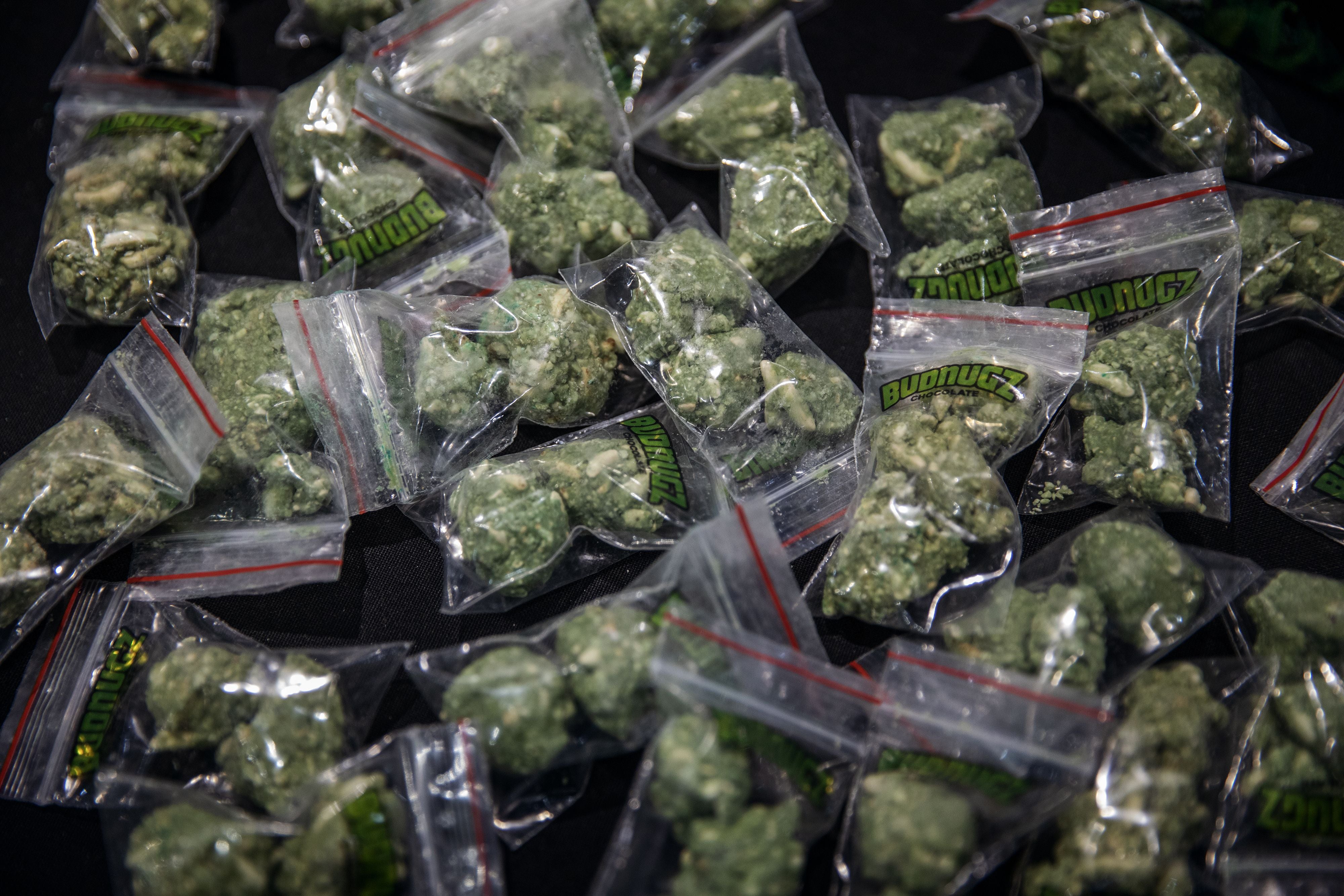Business is booming for drugs such as cannabis – but it’s profit not health that motivates this new industry
Policy changes and a shift in attitudes towards narcotics has meant there’s money to be made from the sale of these products. However, caution is needed to protect users from any potential harm


Your support helps us to tell the story
From reproductive rights to climate change to Big Tech, The Independent is on the ground when the story is developing. Whether it's investigating the financials of Elon Musk's pro-Trump PAC or producing our latest documentary, 'The A Word', which shines a light on the American women fighting for reproductive rights, we know how important it is to parse out the facts from the messaging.
At such a critical moment in US history, we need reporters on the ground. Your donation allows us to keep sending journalists to speak to both sides of the story.
The Independent is trusted by Americans across the entire political spectrum. And unlike many other quality news outlets, we choose not to lock Americans out of our reporting and analysis with paywalls. We believe quality journalism should be available to everyone, paid for by those who can afford it.
Your support makes all the difference.The rise in online retail shopping has grown significantly in recent years, so perhaps we shouldn’t be surprised by a new report from the United Nations revealing a four-fold increase in dark web drug sales over the last decade. Four years ago, they estimate this market was worth $80m (£57.7m) and has now grown to $315m (£227.5m).
Just one of many interesting revelations about the current state of the world drug market and those involved in it. One of the continents that is often overlooked in terms of illicit drug use is Africa, perhaps due to the attention given to famine and poverty by the media. Poverty is one of the associations and drivers of drug use in any population. The UN estimates that while the number of people using drugs in Europe will fall by 2030, Africa will see an explosion in use rising from 60 million in 2018 to 86 million in 2030.
As with trends in alcohol and tobacco use, developing countries tend to follow patterns in drug use seen in Europe and America, albeit with a time lag of a few years. That adds to the credibility of the UN’s projected estimate of drug use in Africa. The UN suggests that African governments need to acknowledge population drug use and respond proactively to minimise the potential harm this could create. It’s a tough call given the competing priorities that politicians and policy makers have in these countries – one of which is securing sufficient Covid vaccines and the infrastructure needed to deliver them.
One unifying global factor that the UN report highlights is the significant rise in cannabis potency. Between 1995 and 2019 they found a four-fold increase in the strength of available cannabis. This rise in potency is due to the strength of one of its constituents delta9-tetrahydrocannbinol (THC) accompanied by a fall in cannabinoids (CBDs) which are thought to regulate the effects of THC. This phenomenon has received media attention in recent years but what is less well known are the views and perception of young people. Here there is an interesting divergence: as the potency of cannabis has risen, the perception of its risk has in parallel fallen among adolescents.
A shift likely influenced by recent policy changes in many US states. By allowing access to cannabis for recreational as well as medicinal reasons, it has signalled to young people that the drug is safe and a low risk to health. At the same time, cannabis commerce has promoted this idea and made claims about the benefits of using cannabis. Many of which offer false hope to those facing life threatening conditions such as cancer. The evidence base doesn’t support the use of cannabis products in terminal care.
It is these issues that have prompted the UN to call for a global ban on cannabis advertising. This they think would help ensure that “public health interests prevail over business interests”. Worthy as this ambition is, it’s difficult to see how the significant funds available to business can be matched by public health bodies, which in America – as well as the UK – are facing a critical squeeze on their budgets.
Any public health messaging or campaigns compete with sophisticated and persuasive marketing by the cannabis industry. It’s far from a fair fight. Public health credibility on cannabis information isn’t helped by historic propaganda aimed at scaring young people about the risks to their mental health if they use the drug. Paradoxically it seems that business messaging is more credible, even though it is at odds with the evidence about the health benefits of cannabis.
What is evident from past experience with the alcohol and tobacco industries, it is profit not personal health that motivates this new industry. They will replicate alcohol and tobacco by lobbying policy makers to ensure the lightest of regulation for their product.
As with any drug, cannabis is not all bad, but neither is it all good. The difficulty we still have is working out in advance who the individuals are that will develop problems as a result of exposure. We still wait until a problem has developed rather than being proactive.
Join our commenting forum
Join thought-provoking conversations, follow other Independent readers and see their replies
Comments